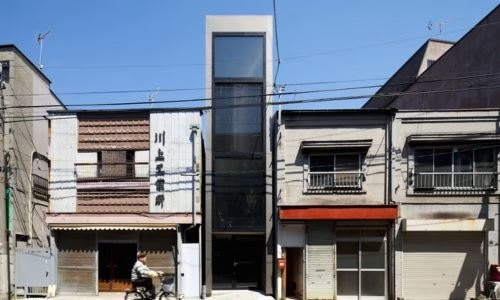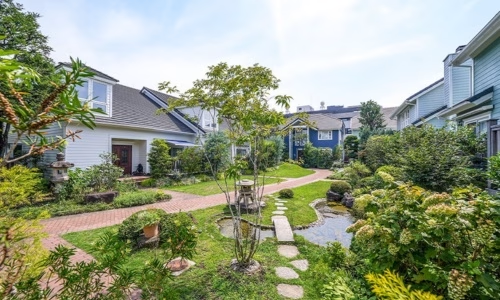If you’re searching for an apartment in Tokyo for rent, you’re not alone. As one of the world’s most dynamic and livable cities, Tokyo continues to attract professionals, students, and expats from around the globe. With its incredible public transport, low crime rate, and vibrant neighborhoods, living in Tokyo offers convenience, safety, and culture, all rolled into one.
Why Live in Tokyo?
Living in Tokyo offers a rare balance between fast-paced modern life and deep cultural roots. As Japan’s capital and largest city, Tokyo delivers convenience, safety, and endless opportunities, making it one of the most attractive places to live, especially for newcomers from abroad.
One of the city’s biggest strengths is its world-class transportation system. Trains and subways run frequently, connect almost every corner of the city, and are famously punctual. Whether you’re heading to work, school, or a late-night dinner, you can rely on Tokyo’s network to get you there quickly and safely.
Tokyo is also known for being exceptionally clean and well-organized. Even in the busiest districts, the streets are tidy, and crime rates remain very low. This sense of order gives the city a calm, structured feel despite its massive size.
For lifestyle, Tokyo has something for every taste and budget. You’ll find everything from quiet residential neighborhoods to lively shopping hubs, cozy local eateries to Michelin-starred dining. Entertainment options include museums, anime culture, music venues, parks, and seasonal festivals.
Professionally, the city offers strong career opportunities in tech, finance, education, and creative fields. Many international companies are based here, and more apartments are becoming foreigner-friendly, making it easier to settle in.
In short, Tokyo is a city where modern convenience meets cultural depth, an ideal place to live, work, and explore.

Live Smart in Dynamic Tokyo
Types of Apartments in Tokyo and Who They’re For
When searching for an apartment in Tokyo for rent, understanding the different layout types can help you choose a space that suits your daily needs and budget. Here are some of the most common apartment formats you’ll find in Tokyo’s rental market:
- 1R / 1K (Studio Apartments): These compact units are perfect for single occupants such as students, interns, or working professionals. The 1R layout features a single room with an open kitchen, while 1K units have a separate kitchen area. They’re usually the most affordable option and easy to maintain.
- 1LDK to 2LDK: These apartments include a separate bedroom along with a Living, Dining, and Kitchen (LDK) space. They’re ideal for couples, remote workers, or anyone who needs a bit more privacy and flexibility. The extra space makes it easier to work from home or host visitors.
- 3LDK and Larger: Designed with families in mind, these units offer multiple bedrooms and a generous common area. They’re also suitable for roommates or long-term residents who want more room to settle in comfortably.
- Furnished Apartments in Tokyo: These ready-to-move-in rentals are especially popular among expats, digital nomads, and short-term tenants. Fully equipped with furniture, appliances, and basic utilities, they offer convenience but often come at a 10–20% higher rental rate compared to unfurnished options.
Choosing the right apartment type depends on your lifestyle, living arrangement, and how long you plan to stay in Tokyo.

Tokyo apartment types for every lifestyle
Tokyo Rent Prices in 2025
Rental prices in Tokyo can vary significantly depending on several key factors, including location, apartment size, and building type. Here’s a general overview of what you can expect to pay in 2025:
- Studios (1R / 1K): These compact units are ideal for individuals. Monthly rent typically ranges from ¥65,000 to ¥110,000, depending on proximity to train stations and central districts.
- 1LDK – 2LDK Apartments: Suitable for couples or small families, these layouts provide a separate bedroom and a combined living-dining-kitchen space. Rents usually fall between ¥120,000 and ¥220,000 per month.
- 3LDK or Larger: Designed for families or shared living, these spacious units start at around ¥230,000/month, with prices rising in newer buildings or more central locations.
- Furnished Apartments in Tokyo: If you’re considering a furnished unit, expect to pay 10–20% more than the base rent. While they’re more expensive, they save time and setup costs, ideal for short-term stays or expats relocating quickly.
When it comes to location, central wards such as Minato, Chiyoda, and Shibuya tend to have higher rental rates due to their convenience, international appeal, and access to amenities. Meanwhile, areas like Kita, Edogawa, and Suginami offer more affordable housing options, especially attractive for students, remote workers, or those on a tighter budget.
For those planning a long-term rental in Tokyo, many choose to explore suburban neighborhoods. These areas typically offer larger living spaces, quieter surroundings, and better value without sacrificing access to public transportation.

Suburbs offer value and space
How to Find an Apartment in Tokyo for Rent
Looking for an apartment in Tokyo might feel overwhelming at first, especially for non-Japanese residents. Fortunately, there are several reliable ways to begin your search, whether you’re renting short-term or settling in for the long haul.
- Rental listing sites including SUUMO and Homes, and Arealty provide a wide range of listings, from compact studios to spacious family units. Many of these platforms allow filtering by rent, layout, location, and whether a listing is foreigner-friendly.
- Real Estate Agencies: Numerous local agencies now provide bilingual services, helping foreign tenants navigate the paperwork and legal process more smoothly. Visiting an office in person can also help you access listings not published online.
- Relocation Services: Ideal for first-time movers, these companies offer personalized support, from finding an apartment to setting up utilities. They’re especially helpful if you’re unfamiliar with Japanese rental procedures or language.
- Expat Communities and Forums: Online communities like Facebook groups or Reddit threads dedicated to life in Tokyo often share housing leads, real estate agent referrals, and personal experiences that can be incredibly valuable.
If you’re seeking expat housing in Tokyo, look for listings labeled as “foreigner-friendly.” These properties are typically more flexible, often do not require a Japanese guarantor, and may offer simplified contracts for international residents.
Required Documents and Upfront Costs
Renting an apartment in Tokyo requires both proper documentation and a clear understanding of the initial costs involved. For foreigners, the process can feel unfamiliar at first, but with the right preparation, it becomes much more manageable.
- Valid passport and residence card: These are used to verify your legal status in Japan. Landlords and agencies will check your visa type and its expiration date before processing your application.
- Proof of income or employment: You’ll need to show that you can cover the monthly rent. This usually includes recent payslips, a job contract, or a letter of employment. Freelancers or business owners may be asked to provide bank statements or tax documents.
- Guarantor or guarantor company: In most cases, landlords require a guarantor, someone in Japan who can take responsibility if you fail to pay rent. If you don’t have a guarantor, you can use a guarantor company for a one-time fee, typically between 30% to 100% of one month’s rent.
Upfront Costs When Renting in Tokyo
The initial move-in cost is often equivalent to four to six months’ worth of rent. This includes:
- Deposit (shikikin): Typically one to two months’ rent, refundable
- Key money (reikin): Zero to two months’ rent, non-refundable
- Agency fee: Usually one month’s rent plus tax
- One month’s rent due ahead of the move-in date
Because these costs can be significant, it’s important to budget carefully. Some foreigner-friendly rentals in Tokyo offer reduced fees or no key money, making them a more affordable option for international residents.
Where to Live in Tokyo Based on Lifestyle and Budget
One of the great advantages of living in Tokyo is its wide variety of neighborhoods, each offering something different depending on your needs, income level, and lifestyle preferences. Whether you’re a working professional, raising a family, or managing life as a student, there’s a part of Tokyo that fits your situation.
For working professionals: If you’re seeking easy access to business hubs, dining, and entertainment, areas like Akasaka, Ebisu, and Roppongi are excellent choices. These neighborhoods are known for their convenience, international flair, and proximity to offices, making them ideal for full-time employees, executives, and expats.
For families: If your priorities include space, good schools, and a calm residential environment, consider moving to Setagaya, Koto, or Nerima. These districts offer family-sized apartments, green parks, and a quieter pace of life, perfect for children and long-term living.
For students or budget-conscious renters: Those on a tighter budget will find more affordable housing options in Hachioji, Adachi, and Itabashi. These areas may be farther from central Tokyo but offer lower rent, reasonable commutes, and access to local universities.
If you’re not sure where to begin, areas along the JR Chuo Line and Tokyu Den-en-toshi Line are popular among commuters. They provide a good balance of accessibility, rental price, and quality of life, making them a smart choice for many first-time renters in Tokyo.
Tips for Foreigners Renting in Tokyo
Navigating the Tokyo rental market as a non-Japanese resident can be challenging, but with the right approach, it becomes much more manageable. Here are some practical tips to help you find the right apartment in Tokyo with less stress:
Work with bilingual real estate agents or companies like Arealty: Language barriers can cause confusion when reviewing contracts or communicating with landlords. Choosing an agency that offers services in English, or your native language, can make the entire process smoother and more transparent. Arealty, for example, specializes in foreigner-friendly properties and helps guide renters through every step.
Choose furnished apartments for short-term stays: If you’re planning to stay in Tokyo for just a few months, a furnished apartment is often the most convenient option. These units come equipped with furniture, appliances, and basic utilities, saving you time and setup costs. While rent may be slightly higher, it eliminates the need to buy household items.
Search for apartments with no key money or guarantor required: Some properties waive traditional requirements like key money (reikin) or the need for a Japanese guarantor. These listings are ideal for newcomers who don’t yet have local connections or want to avoid high upfront costs.
Consider shared housing or co-living communities: For those on a limited budget, shared apartments or co-living spaces offer a more affordable way to live in Tokyo. These setups often include utilities, come fully furnished, and provide a sense of community, especially helpful for students or solo travelers adjusting to life in Japan.
Conclusion
Whether you’re a first-time visitor, a working professional, or an international student, finding an apartment in Tokyo for rent is more accessible than ever, thanks to the rise of foreigner-friendly listings and bilingual support.
By taking the time to research your options, setting a realistic budget, and choosing a neighborhood that suits your daily needs, you’ll be well on your way to securing the right place. And with experienced agencies like Arealty, which specializes in helping non-Japanese residents navigate the rental process, getting settled in Tokyo can be smooth and stress-free.
With the right guidance and preparation, your new apartment in Tokyo is just a few clicks away.






Leave a Reply